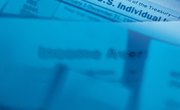
CPAs are human and mistakes happen. Mistakes can be rectified, when necessary, with an amended filing, so let your CPA know right away. Whether you're the person in charge of your employer's tax compliance or a small business owner who reports business income on a personal income tax return, you have the same options for getting the situation straightened out. However, the steps to take after discovering the CPA's mistake will depend on the financial cost of the error.
Is the Mistake Material?
As soon as you discover the tax return mistake, the first thing to do is contact the CPA who prepared it. Your CPA should tell you whether the mistake is material, meaning the error caused you to substantially understate the amount of income tax owed or resulted in an overpayment of tax that should be refunded. In some cases, the mistake's impact on the reported tax liability may be so minor that no corrective action needs to be taken.
Read More: What if I Made a Mistake on My Taxes?
Amend The Return
Provided that the mistake was the CPA's fault and not based on incomplete or inaccurate information you submitted, you may want to request that the tax return be amended at no additional cost. Federal tax returns are amended by filing Form 1040X with the Internal Revenue Service, though if a state or local income tax return was filed, it's likely that it too needs to be amended.
Read More: How to File an Amended Tax Return
Older Tax Returns
If you discover mistakes on older tax returns, the statute of limitations may prevent your CPA from amending them. For mistakes that cause you or your employer to pay more income tax than would've been owed had the return been accurate, the IRS gives you the longer of three years from the return's due date or two years from the time the tax was paid to file an amended return to claim a refund.
But if the mistake caused you to underpay the tax, keep in mind that the IRS cannot assess and collect the additional tax if the original deadline or actual filing date, whichever is longer, was three or more years ago. Therefore, you may not even have to address the mistake.
Read More: How to Check Your Amended Tax Return Status
Provided that the mistake was the CPA's fault and not based on incomplete or inaccurate information you submitted, you may want to request that the tax return be amended at no additional cost.
Penalties & Interest
Also important to consider is whether the mistake will result in penalty and interest charges. Penalties and interest only apply if there is an underpayment of tax. In this case, the only way to mitigate the damage is to stop those penalty and interest charges from accruing. This can only be done by paying the outstanding tax bill with the amended return you file. If the mistake was your fault, you'll face a penalty of 0.5% each month that the balance remains unpaid.
In the event the CPA is uncooperative, it may be beneficial to hire a new CPA to calculate the precise amount of tax owed as soon as possible. According to Klasing Associates, the IRS holds tax preparers liable for mistakes. The CPA may have to pay a $1,000 penalty or 50 percent of the income to be derived for each mistake.
Results of CPA Liability
Whether the mistake to your tax return is the result of an oversight, negligence or blatant incompetence, your CPA may be liable for monetary damages if you decide to file a lawsuit and are successful. You can generally recover any penalties the IRS and other tax agencies charge, fees you pay to a different CPA to correct the tax return and, depending on the jurisdiction, you may be able to recover some or all of the interest charges as well.
References
Writer Bio
This article was written by PocketSense staff. If you have any questions, please reach out to us on our contact us page.
